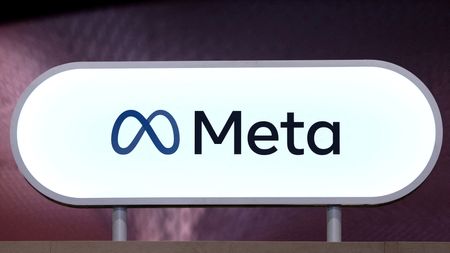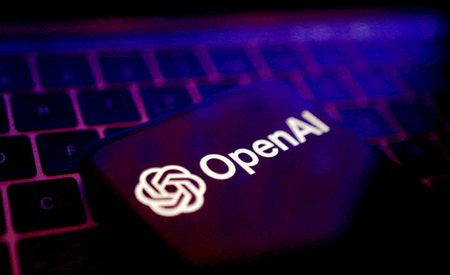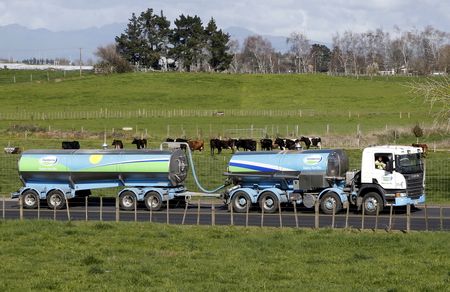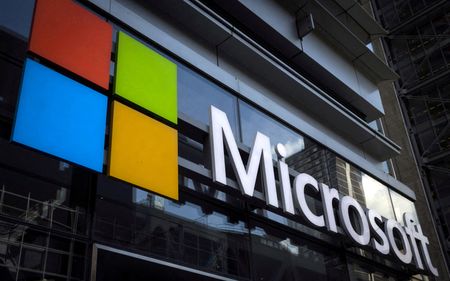By Jaspreet Singh and Echo Wang
(Reuters) -Meta on Wednesday forecast “notably larger” capital expenses next year thanks to investments in artificial intelligence, including aggressively building data centers to power its AI push.
The Facebook and Instagram parent reported third-quarter revenue growth of 26% that beat market estimates, but that jump was outpaced by a 32% increase in costs.
Shares of the company – that have risen 28% so far this year – fell 8% after the bell, as Wall Street digested Zuckerberg’s even bigger capital plans to build out AI data center capacity that will pressure margins.
Meta also recorded a nearly $16 billion one-time charge related to U.S. President Donald Trump’s ‘Big Beautiful Bill’ that pummeled its third-quarter profit. Excluding the charge, net income in the quarter would have increased to $18.64 billion, compared with the reported net income of $2.71 billion.
After a late start, Meta has doubled down on AI, with a target of achieving superintelligence, a theoretical milestone where machines outthink humans. To that end, it has pledged to spend hundreds of billions of dollars to build several massive AI data centers for superintelligence and is planning for bigger financial outlays to meet big compute needs.
“There’s a range of timelines for when people think that we’re going to get superintelligence,” CEO Mark Zuckerberg said on a conference call with analysts. “I think that it’s the right strategy to aggressively front-load building capacity, so that way we’re prepared for the most optimistic cases.”
If superintelligence takes longer than expected, then Meta will use the extra compute to accelerate its core business, and in the worst-case scenario, the company would slow building new infrastructure for some periods, he said.
“After a few years of existential hand-wringing, the company has found its rhythm again by doing what it does best: scaling attention and monetizing it with ruthless efficiency,” said Jeremy Goldman, a senior director at Emarketer.
“While everyone else is still pitching AI moonshots, Meta has quietly turned AI into margin. Its ad tools are sharper, its targeting smarter, and its short-form video business is finally paying off.”
HIRING SPREE BOOSTS EXPENSE OUTLOOK
Meta, determined to catch up with rivals including Microsoft and Alphabet’s, has accelerated spending on AI, reorganizing its AI efforts under a “Superintelligence Labs” unit in June. Zuckerberg has personally led an aggressive spree to hire talent. The company is among the top buyers of Nvidia’s sought-after AI chips.
“Meta Superintelligence Labs is off to a strong start,” Zuckerberg said. “I think that we’ve already built the lab with the highest talent density in the industry … We’re also building what we expect to be an industry-leading amount of compute.”
Employee compensation costs will be the second largest contributor to the increase in costs next year to account for the compensation of employees hired throughout 2025, particularly AI talent, Meta CFO Susan Li said in a statement.
Between the three companies, plus Amazon and ChatGPT owner OpenAI, construction of AI datacenter capacity has skyrocketed. The costs to build these centers have fueled fears of an AI bubble, putting pressure on CEOs to deliver measurable results, and prompting them to find partners to help finance these outlays.
On Wednesday, Alphabet and Microsoft also signaled higher AI investments. OpenAI CEO Sam Altman on Tuesday said he would eventually like the company to be able to add 1 gigawatt of compute every week – an astronomical sum given that each gigawatt currently comes with a capital cost of more than $40 billion.
Meta also boosted the lower end of its capital expenditure outlook to between $70 billion and $72 billion this year, compared with its prior forecast of $66 billion to $72 billion.
“Meta’s earnings reveal the growing tension between the company’s massive AI infrastructure investments and investor expectations for near-term returns, with rising spending on artificial intelligence capabilities weighing on sentiment despite solid underlying business performance,” said Jesse Cohen, a senior analyst at Investing.com.
MASSIVE USER BASE FUELS AD REVENUE
Meta continues to benefit from its massive user base. The company’s powerful AI-optimized ad platform helps marketers automate campaigns, improve the quality of video ads, translate ads and generate persona-based images to target different customer segments.
The company estimates that more than 3.5 billion people used at least one of its apps on a daily basis last month.
The company has launched ads on its messaging platform WhatsApp and social network Threads, directly competing with platforms such as Elon Musk’s X, while Instagram’s Reels continue to jostle with ByteDance’s TikTok and YouTube Shorts for ad revenue in the short-video market.
Meta said it expects fourth-quarter revenue between $56 billion and $59 billion, compared with analysts’ average estimate of $57.25 billion, according to data compiled by LSEG.
(Reporting by Jaspreet Singh in Bengaluru; Editing by Alan Barona, Deepa Babington and Sayantani Ghosh)











